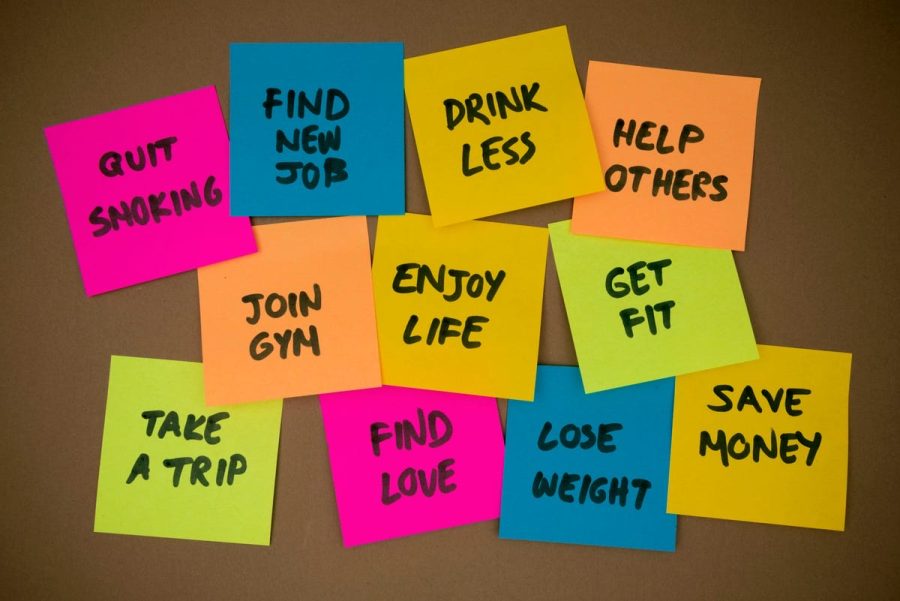The Problem with New Years Resolutions (and How to Fix it)
As January comes to a close, let us take the time to reflect on the first one-twelfth of the
year. Have we kept to the promises that we swore to uphold in this new year? Have we
followed through with our resolutions, or have they already been forgotten? Have old
habits died down or are they continuing to persist? If you answered negatively to the
previous questions, do not be discouraged. In reality, new years are just arbitrary
starting points that have no real effect on whether or not someone can turn their life
around.
The biggest misconception when it comes to New Year’s resolutions is that the new
year brings a blank slate. Consequences and rewards from the previous year carry on,
regardless of how the Earth moves. If a bad habit has been built up over a long time, it
takes a great deal of discipline in order to break it, not just a single decision. Most
people who make resolutions mistakenly expect change to be easy, and when they are
faced with the reality that change actually takes effort, their goals shatter into a million
pieces. This leaves us with two options: can we find a way to better stick to our
resolutions or are there better alternatives than setting a goal for the new year?
Picking a good resolution is the first and most important step. It is best to choose just
one goal and be specific about it. For example, don’t resolve to merely “be more active”;
resolve to “run at least 3 times a week.” It is also important to understand yourself and
know what is feasible for you to do. If you have been setting and failing the same goal
for the past few years, it may be helpful to try something different. Find another smaller
goal which will be easier for you to stick to.
It is critical to not set unreasonable expectations such as going from not exercising at all
to running a mile every day. Sometimes it can help to work at your goal gradually.
Instead of setting a strict standard at the beginning, start easy and work up to more
challenging goals. Go from running three times a week, to five, and then every day.
Make a schedule for yourself and map it out throughout the year to work toward it. It
takes 66 days to form a new habit, so consistency is key. If you miss a day, do not let it
discourage you and just pick up right where you left off. The more days you miss, the
harder it is to keep the habit up, so try your best to establish a routine. Friends and
family can be helpful for keeping you accountable and making sure you stay on top of
your goals.
However, as previously stated, the start of the new year is not the only time to make a
change in your life. You can start in the middle of the year, at the start of a random
week, or even right now. The crux of the matter remains the same: dedication and
consistency are critical. If taking on a life-altering, long term goal is too daunting, opt for
short term goals. Plan to declutter your room by the end of the month. Track and limit
your screen time to a certain number of hours for a day or two and see how that works.
Instead of making a goal, you can also create a list of things to look forward to, creating
little checkpoints which can increase your motivation and mood as you go through the
year.
Whether or not you do make new year’s resolutions and whether or not you stick to
them, it is always important to self-reflect and take time to understand what areas in
your life may need to be changed. Identifying and coming to terms with a problem is the
first step in altering anything. Change will never happen automatically, but it is possible
for anyone who really sets their mind to it and commits to their goal.

Isabel Gonzales is a senior and the Opinion Editor of the CNBG newspaper. She is also the president of the Literary Club and the treasurer of the National...














